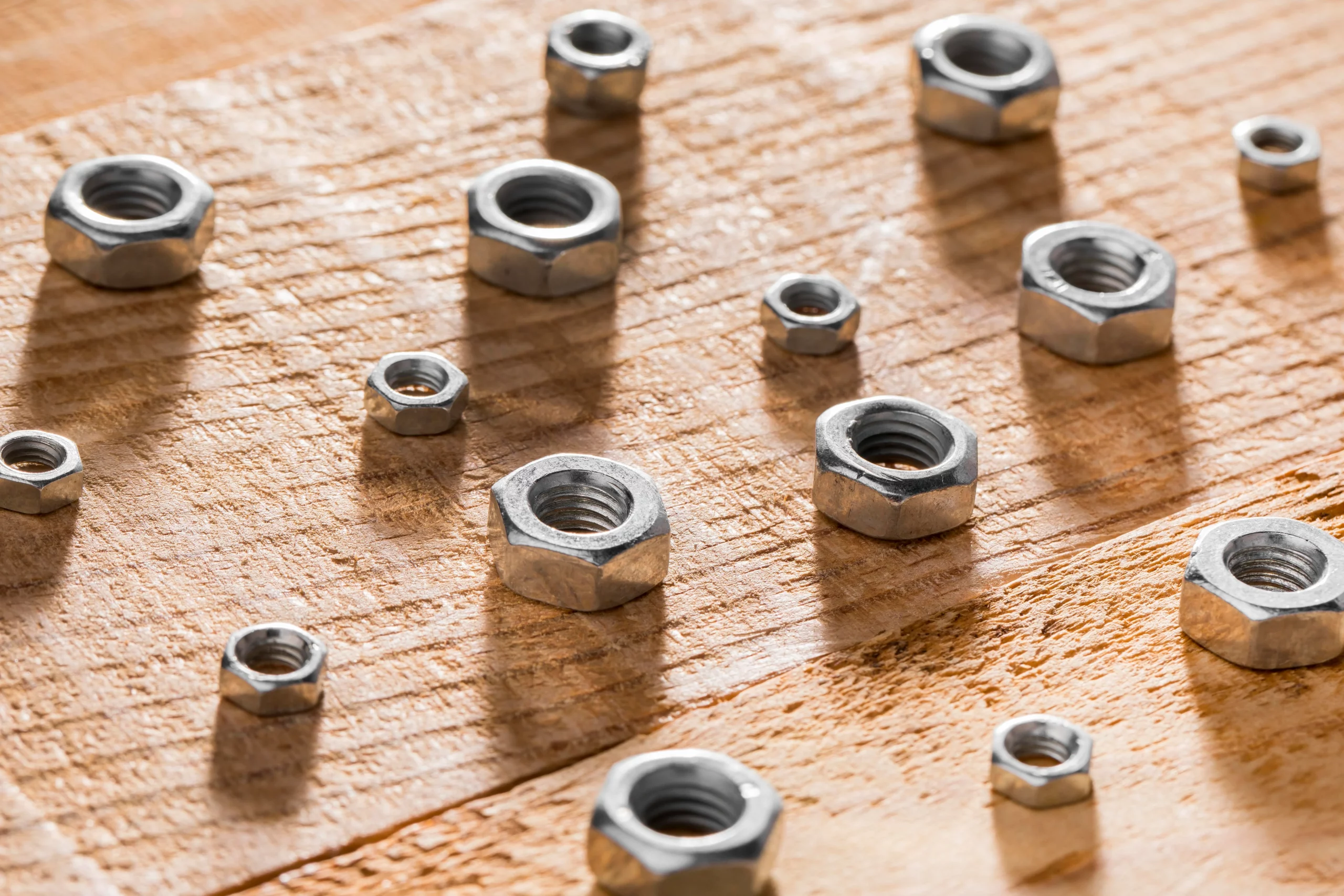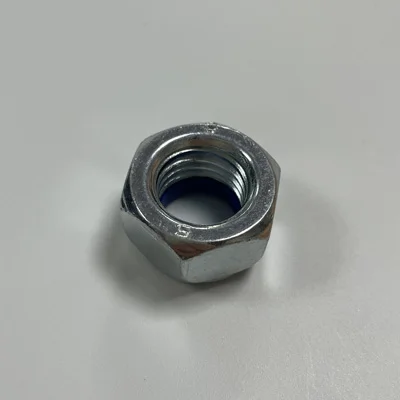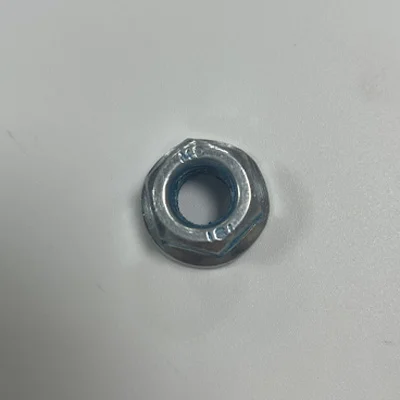caTEGORIES
Tags
What Are the Best Bolts and Nuts for High-Vibration Applications?

Posted: July 31, 2025
Categories: News
Tags: news
In places with lots of shaking, bolts and nuts face tough conditions. They can loosen or even break, causing big problems. Picking the right bolts and nuts is important for keeping things safe and working well. It also cuts down on fixes. At QEWIT, we provide strong, certified fasteners that handle the tough needs of industries like building, cars, heavy machines, and trains.
Why Fasteners Loosen Under Vibration
Shaking can slowly weaken a bolted joint. This makes the bolt or nut lose its tight grip. Tiny movements happen with each shake. Over time, these small shifts can make the bolt or nut come loose completely. This is a big issue in machines that spin, car engines, building structures, or heavy equipment.
Key Performance Factors for Vibration-Resistant Fasteners
Grip Strength and Load-Bearing Capacity
Fasteners in shaky places need to be super strong. They must hold tight under big stress. QEWIT offers hex bolts and setscrews made from tough carbon steel in grades 8.8, 10.9, and 12.9. These ensure a strong joint that won’t fail.
Material and Surface Protection
Rust can make bolts and nuts weaker. It hurts their threads. QEWIT fasteners come with coatings like Bright Zinc Plating (BZP), Hot-Dipped Galvanized (HDG), and our special Elementech 1000 coating. This coating lasts over 1000 hours in salt spray tests. It’s great for indoor and outdoor use.
Installation Precision
Tightening bolts correctly keeps them secure. QEWIT gives advice on torque and shares performance details. This helps customers pick the right fastener and install it properly.
Mechanical Locking Solutions
Nylon Insert Lock Nuts (DIN 985 and DIN 982)
These nuts have a nylon ring inside. The ring grips the bolt’s threads when tightened. This stops the nut from turning loose during shaking. QEWIT provides DIN 985 and DIN 982 nuts in grades 6, 8, and 10. They come in carbon steel or stainless steel (A2 and A4) with different finishes for various jobs.
Serrated Flange Nuts (DIN 6923)
Serrated flange nuts have a built-in washer with rough edges. These edges bite into the surface, spreading the load and stopping the nut from turning. QEWIT’s DIN 6923 nuts come in grades 6, 8, and 10. They have finishes like self-colour, BZP, HDG, and zinc flake for different needs.
Prevailing Torque Locknuts
These nuts stay tight by having slightly bent threads or a springy design. They aren’t reusable like nylon nuts. But they’re perfect for places where stopping movement is critical.
Auxiliary Locking Methods
Spring and Belleville Washers
These washers keep the joint tight even if it shifts a bit. Belleville washers are great for small spaces where you need strong tension. They help stop loosening.
Threaded Inserts and Coil Inserts
Helicoils and similar inserts fix or strengthen threads in soft materials. They create a tough, reusable thread that resists shaking. This keeps the joint secure.
Patch Coatings and Adhesive Threads
QEWIT offers special coatings, like friction patches and thread-sealing layers. These add extra grip to stop fasteners from loosening. They’re great for jobs where parts are assembled many times.
Chemical Locking Solutions
Threadlockers
Special glues, like Loctite, fill gaps between bolt and nut threads. This creates a strong bond that stops movement. It’s good for medium shaking where you don’t need to take parts apart often.
Wedge-Locking Washers (Nord-Lock Type)
These washers come in two pieces. They use a cam design to create tension. When shaking happens, the tension gets stronger. This stops the fastener from turning loose.
Comparative Performance Insights
Nylon Lock Nuts are reusable, cheap, and easy to use. But they don’t work in hot places. Serrated Flange Nuts grip well without extra washers. Threadlockers hold tight but can’t be undone easily. Wedge-Locking Washers are the best at stopping loosening but cost more. QEWIT’s wide range of products lets you pick what’s best for your job. Our ISO 9001 certification ensures top quality.
Real-World Applications
Heavy Machinery & Construction
High-torque bolts (DIN 931/933) with flange nuts work in tough, shaky joints. They handle outdoor weather too. QEWIT fasteners meet strength and rust-resistance needs for these industries.
Automotive & Rail
Flange and nylon lock nuts are used in car suspensions and train engines. They handle lots of shaking. QEWIT’s precise threads and certified parts make us a top choice for these fields.
Structural Installations
In concrete or steel setups, QEWIT’s Lightning Bolt masonry fixings reduce cracking. They’re reusable and great for edges or hollow materials.
Choosing the Right Fastener
Check Vibration Type: Shaking side-to-side needs different solutions than up-and-down shaking.
Think About Heat: Nylon inserts weaken above 120°C.
Plan for Maintenance: Pick reusable fasteners if you need to take things apart often.
Why Choose QEWIT for Anti-Vibration Fasteners?
QEWIT blends British design skills with large-scale Chinese production. We offer:
- Over 30,000 fastener types
- Custom non-standard parts
- ISO 9001 quality checks
- Elementech rust-proof coatings
- Flexible packaging and sampling before shipping
We serve customers worldwide with shipping options like EXW, FOB, and CIF. Our fast-moving items, like DIN 985, DIN 934, and high-tensile DIN 931/933 bolts, ship quickly.
FAQs
Q1: Are nylon insert nuts good for hot places?
A: No. Nylon softens above 120°C. They’re not good for hot spots like engines or exhausts.
Q2: Can I reuse a serrated flange nut?
A: You can, but it’s not best. The rough edges may not grip as well after the first use.
Q3: How do I pick between mechanical and chemical locking?
A: Mechanical options, like flange nuts or wedge-lock washers, are reusable and good for important joints. Chemical threadlockers hold stronger but are harder to undo. They need clean surfaces to work well.



